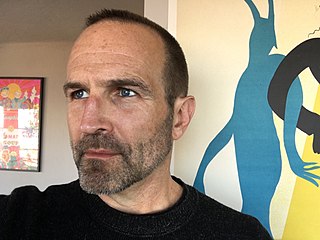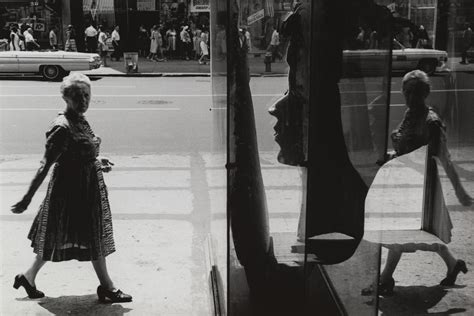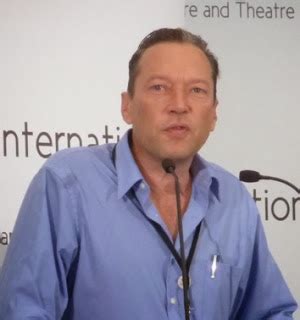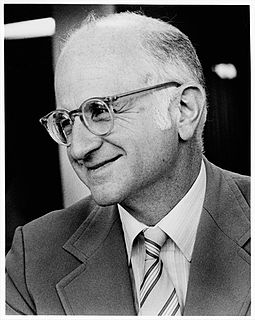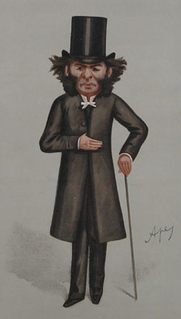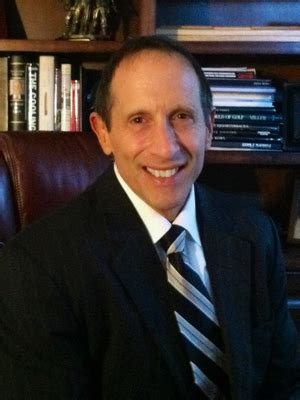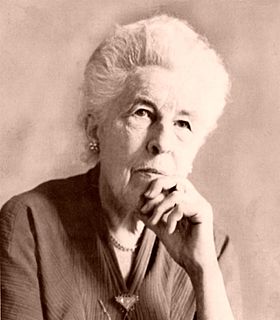Top 650 Motive Quotes & Sayings - Page 11
Explore popular Motive quotes.
Last updated on April 21, 2025.
Sri Yukteswar used to poke gentle fun at the commonly inadequate conceptions of renunciation."A beggar cannot renounce wealth," Master would say. "If a man laments: 'My business has failed; my wife has left me; I will renounce all and enter a monastery,' to what worldly sacrifice is he referring? He did not renounce wealth and love; they renounced him!"Saints like Gandhi, on the other hand, have made not only tangible material sacrifices, but also the more difficult renunciation of selfish motive and private goal, merging their inmost being in the stream of humanity as a whole.
Eisner mentioned he was uncomfortable calling Kirby someone with heavy artistic intent. I paraphrase, but Eisner felt Jack was mostly
concerned with hitting his page count, telling good stories, and
keeping his family fed. Not pursuing some aesthetic ideal - to seek
that motive in Kirby's work was, he suggested, misguided. I happened to be holding the original artwork to the Devil Dinosaur #4 double-splash, which I turned around and showed Eisner - who took a moment, and said something uncharacteristic: “Okay, I might be wrong.
The good diarist writes either for himself alone or for a posterity so distant that it can safely hear every secret and justly weigh every motive. For such an audience there is need neither of affectation nor of restraint. Sincerity is what they ask, detail, and volume; skill with the pen comes in conveniently, but brilliance is not necessary; genius is a hindrance even; and should you know your business and do it manfully, posterity will let you off mixing with great men, reporting famous affairs, or having lain with the first ladies in the land.
I suspect it is for one’s self-interest that one looks at one’s surroundings and one’s self. This search is personally born and is indeed my reason and motive for making photographs. The camera is not merely a reflecting pool and the photographs are not exactly the mirror, mirror on the wall that speaks with a twisted tongue. Witness is borne and puzzles come together at the photographic moment which is very simple and complete. The mind-finger presses the release on the silly machine and it stops time and holds what its jaws can encompass and what the light will stain.
I know it's not strictly sex that accounts for my straying the motive usually attributed to men. I think it's just too tempting to have two lives rather than one. Some people think that too much travel begets infidelity: Separation and opportunity test the bonds of love. I think it's more likely that people who hate to make choices to settle on one thing or another are attracted to travel. Travel doesn't beget a double life. The appeal of the double life begets travel.
One desire has been the ruling passion of my life. One high motive has acted like a spur upon my mind and soul. and sooner than that I should seek escape from the sacred necessity that is laid upon me, let the breath of life fail me. It is this: That in spite of all worldly opposition, God's holy ordinances shall be established again in the home, in the school and in the State for the good of the people; to carve as it were into the conscience of the nation the ordinances of the Lord, to which Bible and Creation bear witness, until the nation pays homage again to God
Part of Sykes's motive was rooted in religiosity. A devout Catholic, he regarded a return of the ancient tribe of Israel to the Holy Land as a way to correcta nearly two-thousand-year-old wrong. That view had taken on new passion andurgency with the massacres of the Armenians. To Sykes, in that ongoing atrocity, the Ottoman Empire had proven it could never again be trusted to protectits religious minority populations. At war's end, the Christian and Jewish HolyLand of Palestine would be taken from it, and the failure of the Crusades maderight.
The Unexpected stalks a farm in big boots like a vagrant bent on havoc. Not every farmer is an inventor, but the good ones have the seeds of invention within them. Economy and efficiency move their relentless tinkering and yet the real motive often seems to be aesthetic. The mind that first designed a cutter bar is not far different from a mind that can take the intractable steel of an outsized sickle blade and make it hum in the end. The question is how to reduce the simplicity that constitutes a problem ("It's simple; it's broke.") to the greater simplicity that constitutes a solution.
We find the vast majority of people in every country believing that there will be a time when this world will become perfect, when there will be no disease, nor death, nor unhappiness, nor wickedness. That is a very good idea, a very good motive power to inspire and uplift the ignorant. But if we think for a moment, we shall find on the very face of it that it cannot be so. How can it be, seeing that good and evil are the obverse and reverse of the same coin? How can you have good without evil at the same time?
It is difficult to find a reputable American historian who will acknowledge the crude fact that a Franklin Roosevelt, say, wanted to be President merely to wield power, to be famed and to be feared. To learn this simple fact one must wade through a sea of evasions: history as sociology, leaders as teachers, bland benevolence as a motive force, when, finally, power is an end to itself, and the instinctive urge to prevail the most important single human trait, the necessary force without which no city was built, no city destroyed.
People ask me: ‘What is punk? How do you define punk?' Here's how I define punk: It's a free space. It could be called jazz. It could be called hip-hop. It could be called blues, or rock, or beat. It could be called techno. It's just a new idea. For me, it was punk rock. That was my entrance to this idea of the new ideas being able to be presented in an environment that wasn't being dictated by a profit motive.
It is hard to see how a great man can be an atheist. Without the sustaining influence of faith in a divine power we could have little faith in ourselves. We need to feel that behind us is intelligence and love. Doubters do not achieve; skeptics do not contribute; cynics do not create. Faith is the great motive power, and no man realizes his full possibilities unless he has the deep conviction that life is eternally important, and that his work, well done, is a part of an unending plan.
What a country wants to make it richer is never consumption, but production. Where there is the latter, we may be sure that there is no want of the former. To produce, implies that the producer de_sires to consume; why else should he give himself useless labor? He may not wish to consume what he himself produces, but his motive for producing and selling is the desire to buy. Therefore, if the producers generally produce and sell more and more, they certainly also buy more and more.
The common ground where the activities of God and man become one is the motive of perfect love; for in the last resolve love is the essence of God's nature. When he thinks, love is his thought; when he wills, love is the product of his will. To the degree, therefore, that man thinks and wills the good--to the degree that he realizes love in his finite dealings--he interfuses himself with God.
You'd better discover a more important motive than publication for your work or else you'll go crazy. My sense is that you'll be writers only if you are convinced that to write is something for which there is no substitute in your life. You must therefore be ambitious for your work rather than for its promotion. The good news here is that if you assign secondary importance to publishing and primary to writing itself, you will write better, and will thus increase your odds of getting publishing.
Since the primary motive of the evil is disguise, one of the places evil people are most likely to be found is within the church. What better way to conceal one's evil from oneself, as well as from others, than to be a deacon or some other highly visible form of Christian within our culture? ... I do not mean to imply that the evil are anything other than a small minority among the religious or that the religious motives of most people are in any way spurious. I mean only that evil people tend to gravitate toward piety for the disguise and concealment it can offer them.
That was the funniest thing I'd heard in days. You're kidding, right? PLEASE tell me you have a stronger motive for me than 'fair is fair.' Life isn't FAIR, Dean....Nothing is fair, EVER. That's the stupidest thing I've ever heard. I need to help you because FAIR IS FAIR? Try, 'I need you to help me so I won't rip out your spine and beat you with it.' I MIGHT respond to that. MAYBE.
First, what is a revolution? Sometimes I'm inclined to believe that many of our people are using this word "revolution" loosely, without taking careful consideration [of] what this word actually means, and what its historic characteristics are. When you study the historic nature of revolutions, the motive of a revolution, the objective of a revolution, and the result of a revolution, and the methods used in a revolution, you may change words. You may devise another program. You may change your goal and you may change your mind.
I wish I could recall with clarity the impulse that compelled me to help bring this camp into being. I'd be pleased if I could announce a motive of lofty purpose. I've been accused of compassion, of altruism, of devotion to Christian, Hebrew, and Muslim ethic, but however desperate I am to claim ownership of a high ideal, I cannot. I wanted, I think, to acknowledge Luck; the chance of it, the benevolence of it in my life, and the brutality of it in the lives of others, made especially savage for children because they may not be allowed the good fortune of a lifetime to correct it.
Quotation... A writer expresses himself in words that have been used before because they give his meaning better than he can give it himself, or because they are beautiful or witty, or because he expects them to touch a cord of association in his reader, or because he wishes to show that he is learned and well read. Quotations due to the last motive are invariably ill-advised; the discerning reader detects it and is contemptuous; the undiscerning is perhaps impressed, but even then is at the same time repelled, pretentious quotations being the surest road to tedium.
If, in looking at the lives of princes, courtiers, men of rank and fashion, we must perforce depict them as idle, profligate, and criminal, we must make allowances for the rich men's failings, and recollect that we, too, were very likely indolent and voluptuous, had we no motive for work, a mortal's natural taste for pleasure, and the daily temptation of a large income. What could a great peer, with a great castle and park, and a great fortune, do but be splendid and idle?
In every enterprise ... the mind is always reasoning, and, even when we seem to act without a motive, an instinctive logic still directs the mind. Only we are not aware of it, because we begin by reasoning before we know or say that we are reasoning, just as we begin by speaking before we observe that we are speaking, and just as we begin by seeing and hearing before we know what we see or what we hear.
Motive is also important in our quest for knowledge and in the questioning that accompanies it. In commenting on our duty to educate for eternity, Eugene England writes: Teaching or learning - with the Spirit of God simply means (though it is not simple) that we are doing so with an eye single to eternal, not worldly, values, with an eye single to lasting development of the mind and spirit and to useful service to others, especially to aid in their lasting development of mind and spirit.
To be beneficent when we can is a duty; and besides this, there are many minds so sympathetically constituted that, without any other motive of vanity or self-interest, they find a pleasure in spreading joy around them, and can take delight in the satisfaction of others so far as it is their own work. But I maintain that in such a case an action of this kind, however proper, however amiable it may be, has nevertheless no true moral worth, but is on a level with other inclinations. . . . For the maxim lacks the moral import, namely, that such actions be done from duty, not from inclination.
The very desire to seek spiritual enlightenment is in fact nothing but the grasping tendency of the ego itself, and thus the very search for enlightenment prevents it. The 'perfect practice' is therefore not to search for enlightenment but to inquire into the motive for seeking itself. You obviously seek in order to avoid the present, and yet the present alone holds the answer: to seek forever is to miss the point forever. You always already are enlightened Spirit, and therefore to seek Spirit is simply to deny Spirit.
God never estimates what we give from impulse. We are given credit for what we determine in our hearts to give; for the giving that is governed by a fixed determination. The Spirit of God revolutionises our philanthropic instincts. Much of our philanthropy is simply the impulse to save ourselves an uncomfortable feeling. The Spirit of God alters all that. As saints our attitude towards giving is that we give for Jesus Christ's sake, and from no other motive.
A very tall man once asked a question after my talk. Before beginning his question, he explained that the reason he was standing up is not to be intimidating but rather to make eye contact. His question was essentially "are we really interested in moral motives? Isn't it all about action?". I pointed out to him that it was not enough for him to do the right thing - stand up - but he also wanted me to know that he is doing it from the right motive or for the right reason - to make eye contact, rather than to be intimidating. Voila, moral psychology.
Greed plays a role in causing unnecessary surgery, although I don't think the economic motive alone is enough to explain it. There's no doubt that if you eliminated all unnecessary surgery, most surgeons would go out of business. They'd have to look for honest work, because the surgeon gets paid when he performs surgery on you, not when you're treated some other way. In pre-paid group practices where surgeons are paid a steady salary not tied to how many operations they perform, hysterectomies and tonsillectomies occur only about one-third as often as in fee-for-service situations.
Without the suitable conditions life could not exist. But both life and its conditions set forth the operations of inscrutable Power. We know not its origin; we know not its end. And the presumption, if not the degradation, rests with those who place upon the throne of the universe a magnified image of themselves, and make its doings a mere colossal imitation of their own. Wonder was the motive that led people to philosophy ... wonder is a kind of desire in knowledge. It is the cause of delight because it carries with it the hope of discovery.
Experience was of no ethical value. It was merely the name men gave to their mistakes. Moralists had, as a rule, regarded it as a mode of warning, had claimed for it a certain ethical efficacy in the formation of character, had praised it as something that taught us what to follow and showed us what to avoid. But there was no motive power in experience. It was as little of an active cause as conscience itself. All that it really demonstrated was that our future would be the same as our past, and that the sin we had done once, and with loathing, we would do many times, and with joy.
Christian, let God's distinguishing love to you be a motive to you to fear Him greatly. He has put His fear in your heart, and may not have given that blessing to your neighbor, perhaps not to your husband, your wife, your child, or your parent. Oh, what an obligation should this thought lay upon your heart to greatly fear the Lord! Remember also that this fear of the Lord is His treasure, a choice jewel, given only to favorites, and to those who are greatly beloved.
Neither fear nor self-interest can convert the soul. They may change the appearance, perhaps even the conduct, but never the object of supreme desire... Fear is the motive which constrains the slave; greed binds the selfish man, by which he is tempted when he is drawn away by his own lust and enticed (James 1:14). But neither fear nor self-interest is undefiled, nor can they convert the soul. Only charity can convert the soul, freeing it from unworthy motives.
Those who keep the masses of men in subjection by exercising force and cruelty deprive them at once of two vital foods, liberty and obedience; for it is no longer within the power of such masses to accord their inner consent to the authority to which they are subjected. Those who encourage a state of things in which the hope of gain is the principle motive take away from men their obedience, for consent which is its essence is not something which can be sold.
Every one knows that the heavenly bodies move in certain paths in relation to each other with seeming consistency and regularity which we call [physical] law. ... No one attributes freewill or motive to the material world. Is the conduct of man or the other animals any more subject to whim or choice than the action of the planets? ... We know that man's every act is induced by motives that led or urged him here or there; that the sequence of cause and effect runs through the whole universe, and is nowhere more compelling than with man.
Most of Marx's predictions have failed to materialize, and his labor theory of value and other ideas have been proven wrong. Marx failed to recognize the incentive system built into the capitalist model - consumer choice and the profit motive of the entrepreneur. The irony is that capitalism, not socialism or Marxism, that has liberated the worker from the chains of poverty, monopoly, war, and oppression, and has better achieved Marx's vision of a millennium of hope, peace, abundance, leisure, and aesthetic expression for the 'full' human being.
Think not you are charitable if the love of Jesus and His brethren be not purely the motive of your gifts. Alas! you might not give your superfluities, but "bestow all your goods to feed the poor;" you might even "give your body to be burned" for them, and yet be utterly destitute of charity, if self-seeking, self-pleasing or self-ends guide you; and guide you they must, until the love of God be by the Holy Ghost shed abroad in your heart.
To accept struggle as part of life, to accept all of it, even the darkest moments of anguish; to be motivated by love rather than fear, by confidence rather than insecurity: these are the benchmarks of high self-esteem. The wish to avoid fear and pain is not the motive that drives the lives of highly evolved men and women; rather, it is the life force within them, thrusting toward its unique form of expression-the actualization of personal values.
We might have been ready to offer sympathy, but in actuality there were stronger reasons to want to congratulate her for having found such a powerful motive to feel sad. We should have envied her for having located someone without whom she so firmly felt she could not survive, beyond the gate let along in a bare student bedroom in a suburb of Rio. If she had been able to view her situation from a sufficient distance, she might have been able to recognise this as one of the high points in her life.
Kant does not think that along with choice of an action we also choose in each case the motive from which we do it. He thinks all is well if I act beneficently, realizing that it is my duty but also having sympathetic feelings for the person I help. But I ought to strive to be the sort of person who would still help even if these feelings were absent. And it is such a case that he presents when the sympathetic friend of humanity finds his sympathetic feelings overclouded by his own sorrows, and still acts beneficently from duty.
The motive is this, 'Oh! that God could be glorified, that Jesus might see the reward of his sufferings! Oh! that sinners might be saved, so that God might have new tongues to praise him, new hearts to love him! Oh! that sin were put an end to, that the holiness, righteousness, mercy, and power of God might be magnifi ed!' This is the way to pray; when thy prayers seek God's glory, it is God's glory to answer thy prayers.
I think it's just yet another piece to cause confusion and I think that the 'so-called scientific debate' is very silly now - It's like a bunch of theologians arguing over how many angels you can stick on the head of a needle. When you've got a side that changes from global warming, global warming, global warming to climate change, which is intuitive - the climate has always been changing since the beginning of time - and then just begins to claim every answer is the correct answer, you often stand back, and I don't care who you are, you have to question as to what the real motive is in this.
Some may say [journal keeping] is a great deal of trouble. But we should not call anything trouble which brings to pass good. I consider that portion of my life which has been spent in keeping journals and writing history to have been very profitably spent. - "If there was no other motive in view [except] to have the privilege of reading over our journals and for our children to read, it would pay for the time spent in writing it.
He felt safe with her. He'd never been safe with another human being, not since he'd been taken as a child from his home. He'd never been able to trust. He could never give that last small piece - all that was left of his humanity - into someone else's keeping. And now there was Rikki. She let him be whatever he had to be to survive. She didn't ask anything of him. There was no hidden motive. No agenda. Just acceptance. She was different - imperfect, or so she thought - and she knew what it was like to fight to carve out a space for herself. She was willing for him to do thar.
There was a warmth of fury in his last phrases. He meant she loved him more than he her. Perhaps he could not love her. Perhaps she had not in herself that which he wanted. It was the deepest motive of her soul, this self-mistrust. It was so deep she dared neither realise nor acknowledge. Perhaps she was deficient. Like an infinitely subtle shame, it kept her always back. If it were so, she would do without him. She would never let herself want him. She would merely see.
Liberty, next to religion has been the motive of good deeds and the common pretext of crime, from the sowing of the seed at Athens, 2,460 years ago, until the ripened harvest was gathered by men of our race. It is the delicate fruit of a mature civilization; and scarcely a century has passed since nations, that knew the meaning of the term, resolved to be free. In every age its progress has been beset by its natural enemies, by ignorance and superstition, by lust of conquest and by love of ease, by the strong man's craving for power, and the poor man's craving for food.
I could not sit seriously down to write a serious Romance under any other motive than to save my life, & if it were indispensable for me to keep it up & never relax into laughing at myself or other people, I am sure I should be hung before I had finished the first chapter. No - I must keep my own style & go on in my own way; and though I may never succeed again in that, I am convinced that I should totally fail in any other.
Julian sincerely abhorred the system of oriental despotism which Diocletian, Constantine, and the patient habits of four score years, had established in the empire. A motive of superstition prevented the execution of the design which Julian had frequently meditated, of relieving his head from the weight of a costly diadem; but he absolutely refused the title of Dominus or Lord, a word which was grown so familiar to the ears of the Romans, that they no longer remembered its servile and humiliating origin.
Aside from higher considerations, charity often operates as a vastly wise and prudent principle-a great safeguard to its possessor. Men have committed murder for jealousy's sake, and anger's sake, and hatred's sake, and selfishness' sake, and spiritual pride's sake; but no man that ever I heard of, ever committed a diabolical murder for sweet charity's sake. Mere self-interest, then, if no better motive can be enlisted, should, especially with high-tempered men, prompt all beings to charity and philanthropy.
If 'heartache' sounds exaggerated then surely you have never gone to your garden one rare morning in June to find that the frost, without any perceptible motive, any hope of personal gain, has quietly killed your strawberry blossoms, tomatoes, lima and green beans, corn, squash, cucumbers. A brilliant sun is now smiling at this disaster with an insenstive cheerfulness as out of place as a funny story would be if someone you loved had just died.
Does political correctness have a good side? Yes, it does, for it makes us re-examine attitudes, and that is always useful. The trouble is that, with all popular movements, the lunatic fringe so quickly ceases to be a fringe; the tail begins to wag the dog. For every woman or man who is quietly and sensibly using the idea to examine our assumptions, there are twenty rabble-rousers whose real motive is desire for power over others. The fact that they see themselves as antiracists or feminists or whatever does not make them any less rabble-rousers.

